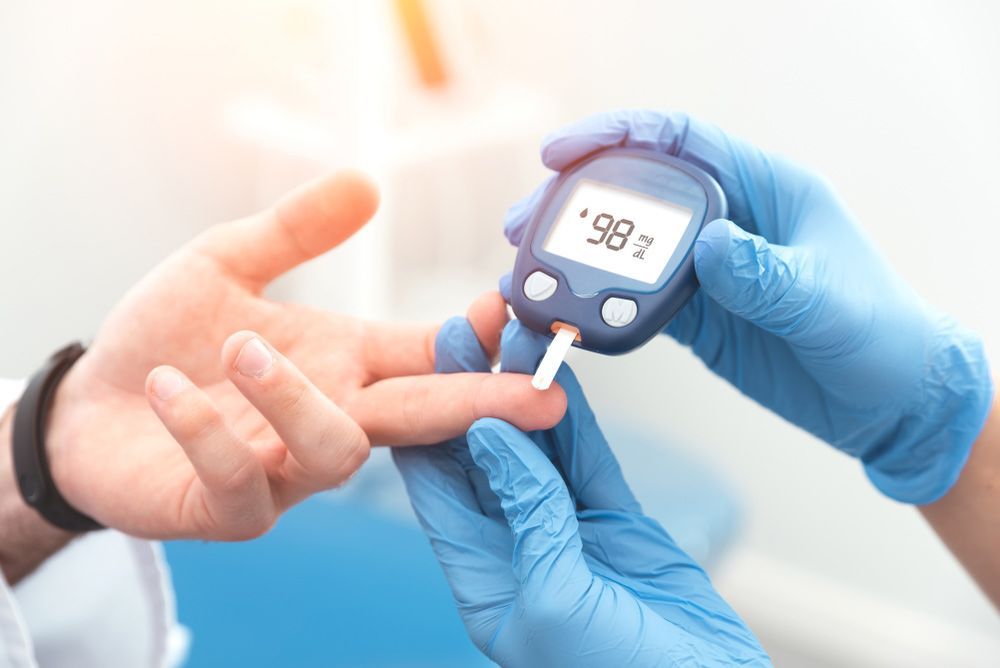Managing Long-Term Health
Diabetes in Rockhampton
- Skin Cancer Checks & Excisions
- Travel Vaccinations & Advice
Rockhampton Diabetes
Diabetes is a long-term health condition that requires regular monitoring and care. At Mount Archer Medical Centre, we provide diabetes medical services to help assess, manage and monitor your health. Our doctors offer consultations to discuss your diabetes management plan, review your blood sugar levels, and support you with lifestyle advice and ongoing health assessments tailored to your needs.
Located in Rockhampton, we provide diabetes health assessments and support for people living with type 1, type 2 and gestational diabetes. Our doctors help you understand your condition and work with you to monitor your health over time. Whether newly diagnosed or managing an existing condition, we provide medical services designed to support your ongoing wellbeing.
Phone (07) 4928 6977 today to book a diabetes consultation.
Mental Health
Support
Female Doctors
Available
Iron Infusions
Available
Ongoing Care & Monitoring
Managing diabetes involves understanding your health needs and regularly reviewing your care plan. Our doctors offer assessments and consultations to help monitor your blood sugar levels, discuss lifestyle changes and adjust your treatment where needed.
- Health Assessments: Book regular consultations to monitor your diabetes, assess your blood sugar and discuss your overall health.
- Lifestyle Support: Discussions around diet, exercise and other lifestyle factors can support your diabetes management alongside medical care.
- Monitoring Complications: Regular checks for complications such as eye health, foot health and kidney function help support your long-term wellbeing.
- Ongoing Care Plans: Care plans may be arranged to support your diabetes management and provide access to allied health services where appropriate.
Speak with our reception team today to book your diabetes assessment and discuss your care needs.
Frequently Asked Questions
What is the difference between type 1 and type 2 diabetes?
Type 1 diabetes is an autoimmune condition where the body’s immune system attacks the insulin-producing cells in the pancreas, resulting in little or no insulin production. It often develops in childhood or adolescence but can occur at any age. Type 2 diabetes is a condition where the body becomes resistant to insulin or doesn’t produce enough insulin. It is more common in adults and is often linked to lifestyle factors, though genetics and other factors also play a role.
How is diabetes managed on a daily basis?
Diabetes management focuses on maintaining stable blood sugar levels throughout the day. This typically involves regular monitoring of blood sugar, following a balanced diet, staying physically active, and taking medication or insulin as prescribed. People with diabetes are encouraged to attend regular medical check-ups to review their health and adjust treatment as needed. Managing stress, getting enough sleep, and reducing alcohol and smoking can also support blood sugar control and overall wellbeing.
Why are regular diabetes check-ups important?
Regular diabetes check-ups help monitor your blood sugar control, assess for complications, and adjust your treatment as needed. Diabetes can affect many areas of your body over time, including your eyes, kidneys, nerves and heart. Regular reviews allow your doctor to assess your overall health, discuss lifestyle factors and recommend preventative care. Ongoing check-ups help you manage your condition more confidently and reduce the risk of serious complications developing over time.
Can lifestyle changes help manage diabetes?
Lifestyle changes are a key part of managing type 2 diabetes and supporting overall health. Eating a balanced diet, increasing physical activity, maintaining a healthy weight, and reducing alcohol intake and smoking can help improve your blood sugar control. For some people with type 2 diabetes, lifestyle changes combined with medication may help manage their condition. Even in type 1 diabetes, healthy lifestyle habits play an important role in supporting your daily health alongside insulin therapy.







